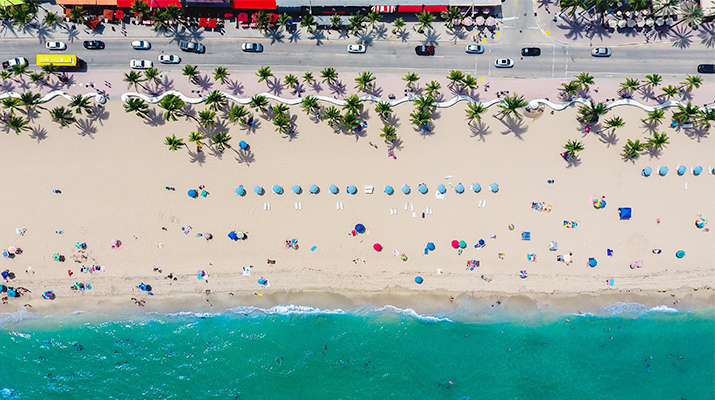
By Xander Peters
As it relates to medical marijuana in the Sunshine State, we still can’t get it right.
In March, more than two years after roughly 71 percent of Florida voters approved of medical marijuana in a 2016 ballot amendment, Republican Gov. Ron DeSantis signed legislation repealing the state’s ban on smoking medically prescribed weed. The bill passed through the Legislature, however reluctantly waved on by our elected representatives, and redefined the term “medical use” to include possession, use or administration of cannabis in smokable form.
Though long overdue, it wasn’t a revolutionary feat on the part of lawmakers given the absurdity of not allowing patients the option of smoking medical marijuana in the first place. To be cautiously optimistic, at that moment it seemed as though we were finally heading in a sound direction for the future of medical marijuana and, though still a hash pipe-dream at best, potentially legal marijuana in Florida.
But, of course, the state’s herbal honeymoon period couldn’t last.
Earlier this month, the GOP-controlled state Legislature continued their killing of our buzz as they pushed forward a proposal that would put a 10 percent cap on the level of euphoria-inducing THC in smokable medical pot. Current THC levels in medical marijuana in Florida range between 15 and 24 percent and, as Commissioner Nikki Fried points out on page 22, few growers produce flower at 10 percent, so thousands of pounds of weed would have to be scrapped. The proposal would also set limits on the level of THC in prescribed edibles and hasten the process for the Florida Department of Health’s medical marijuana rule-making process.
During a House Appropriations Committee meeting, the bill’s sponsor and committee chairman, state Rep. Ray Rodrigues, R-Estero, reasoned that the cap was beneficial based on some bird-brained research published last month in the journal The Lancet Psychiatry that claimed high levels of THC could lead to psychosis. What wasn’t mentioned in the committee meeting, however, was the fact that the study subjects self-reported the amount of THC they were using (an unreliable metric), and every patient surveyed was already dealing with prior issues relating to psychosis before using cannabis.
As of this writing, the state Senate remains less than pleased with the proposal. Still, it was typically pigheaded on the part of at least some of our state lawmakers, spending time trying to reduce access when they could have concentrated their efforts on improving the medicine’s affordability.
State Rep. Carlos Guillermo Smith, D-Orlando, makes a similar point.
“It’s not only the product itself, it’s the cost of basically not being recognized under federal law as a legal medicine, combined with the state ID cards, combined with the doctor fees, combined with the cost of medicine itself,” Smith says.
Between the annual fee to renew each patient’s state-issued medical marijuana identification card ($75), the requirement to see a doctor every 210 days, the cost of that visit ($200 to $300) and the actual price of the medicine for each patient, we’re talking as much as $3,000 a year just to legally obtain medical marijuana. And making matters worse, because cannabis remains illegal at the federal level, none of these costs are eligible to be covered under your traditional health insurance plan, which inevitably drives patients to the black market – i.e., the weed dealer down the street.
Another approach would have been for lawmakers to just fast-forward to the inevitable legalization of marijuana, as Smith and his state House colleague Rep. Michael Grieco, D-Miami Beach, attempted earlier this month when they filed a bill that sought to legalize recreational cannabis for adult use.
Unremarkably, the bill received neither a hearing nor a vote; it was pretty much dead on arrival. Asked whether he’ll take another stab at cannabis legalization legislation next year, Smith says, “It’s going to happen sooner or later, whether it be by a bill passing in the Legislature or a bill passing in Congress or the voters taking matters into their own hands and getting a constitutional amendment on the ballot to be approved.”
Smith adds: “Look, the reality is that prohibition doesn’t work.”
As it relates to both medical marijuana, as well as the future of legal marijuana, in Florida, maybe someday we’ll finally get it right.

